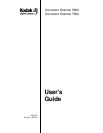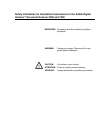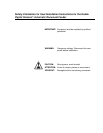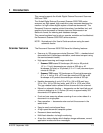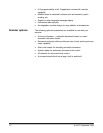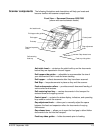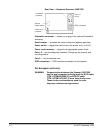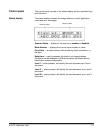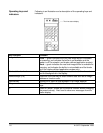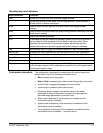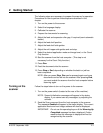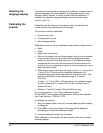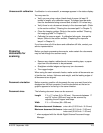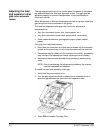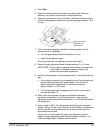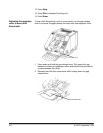
A-61070 September 1999 1-1
1 Introduction
This manual supports the
Kodak Digital Science
Document Scanners
5500 and 7500.
The
Kodak Digital Science
Document Scanner 5000/7000 series
scanners are high-speed, high-resolution rotary scanners designed for
medium- to high-volume digital capture of business documents. The
Document Scanners capture printed characters, handwritten text, and
graphics from documents of various sizes and thicknesses in an
electronic format for indexing and database storage.
This manual explains how to set-up, operate, maintain and troubleshoot
the Document Scanner 5000/7000 series scanners.
NOTE: Illustrations in this User’s Guide are shown using the semi-
automatic feeder.
Scanner features
The Document Scanners 5500/7500 have the following features:
• Scans up to 120 pages per minute (Scanner 7500 — standard sized
documents fed in landscape orientation; continuous transport using
the semi-automatic feeder).
• High-speed scanning and image resolution.
◊ Scanner 5500 scans 80 landscape (A4 size) or 60 portrait
(8 ½ x 11-inch) documents per minute at 200 dpi or 40
landscape (A4 size) or 30 portrait (8 ½ x 11-inch) documents per
minute at 300 dpi.
◊ Scanner 7500 scans 120 landscape or 90 portrait documents
(8 ½ x 11-inch or 216 x 279 mm) per minute at 200 dpi or 80
landscape or 60 portrait documents per minute at 300 dpi.
• Handles documents of up to 2.5 to 20 in. (64 to 508 mm) long,
2.5 to 12 in. (64 to 305 mm) wide, and 0.014 in. (0.36 mm) thick.
The gap release feature allows thicker documents to be scanned.
• Manual or automatic feeding — documents can be hand-fed one at
a time or stacked up to 1.5 inches (38 mm) or approximately 300
documents of 20-pound stock.
• Front and rear scanning allows scanning of one or two sides of a
document in a single pass.
• Easy operation — documents enter and exit the scanner in the
same order.
• Easy-to-reach control panel keys.
• A high-speed document transport system.
• Document skew monitoring.
• Multi-feed detection via length monitoring
• A two-line, status display which displays image addresses, current
application modes and error messages.



